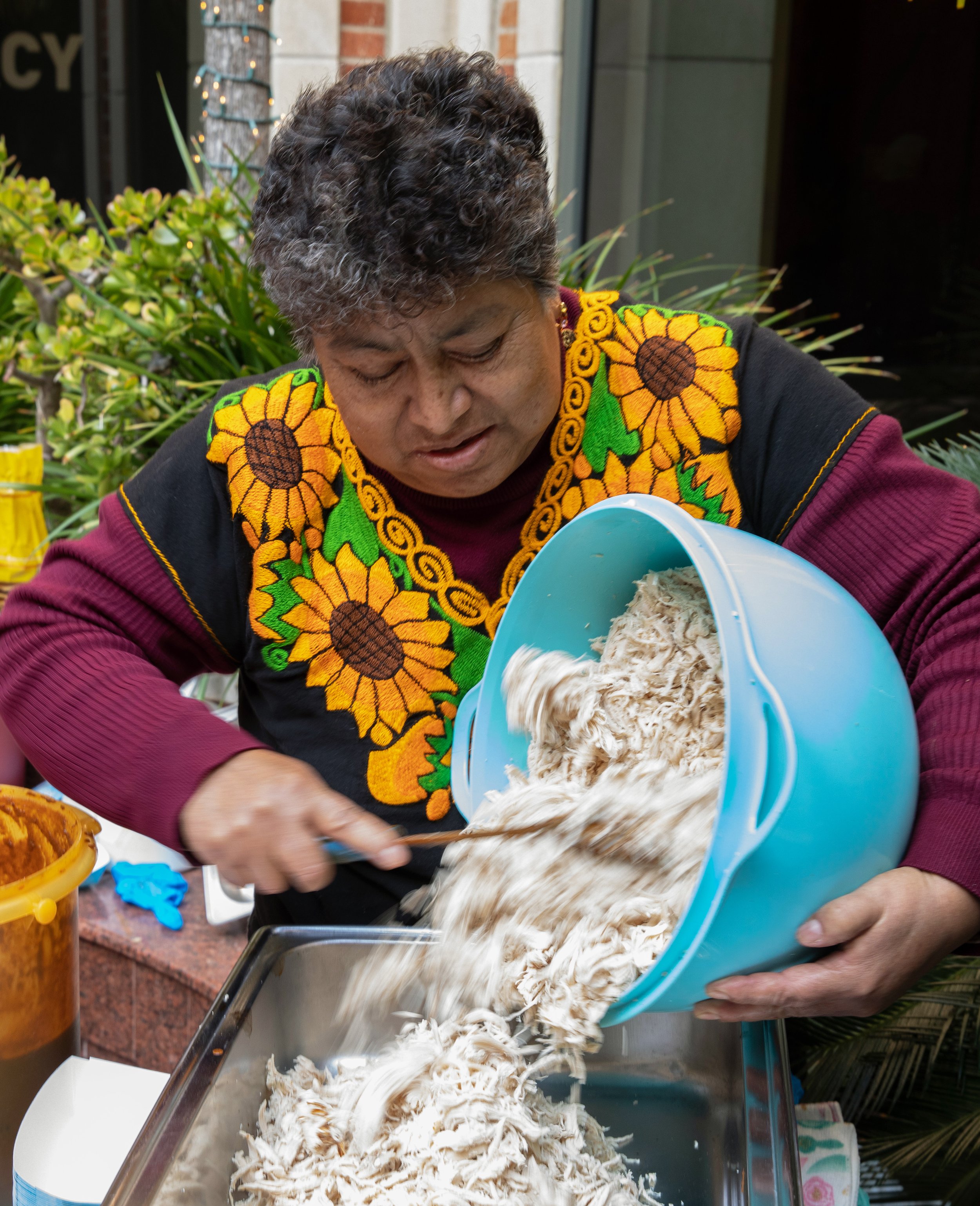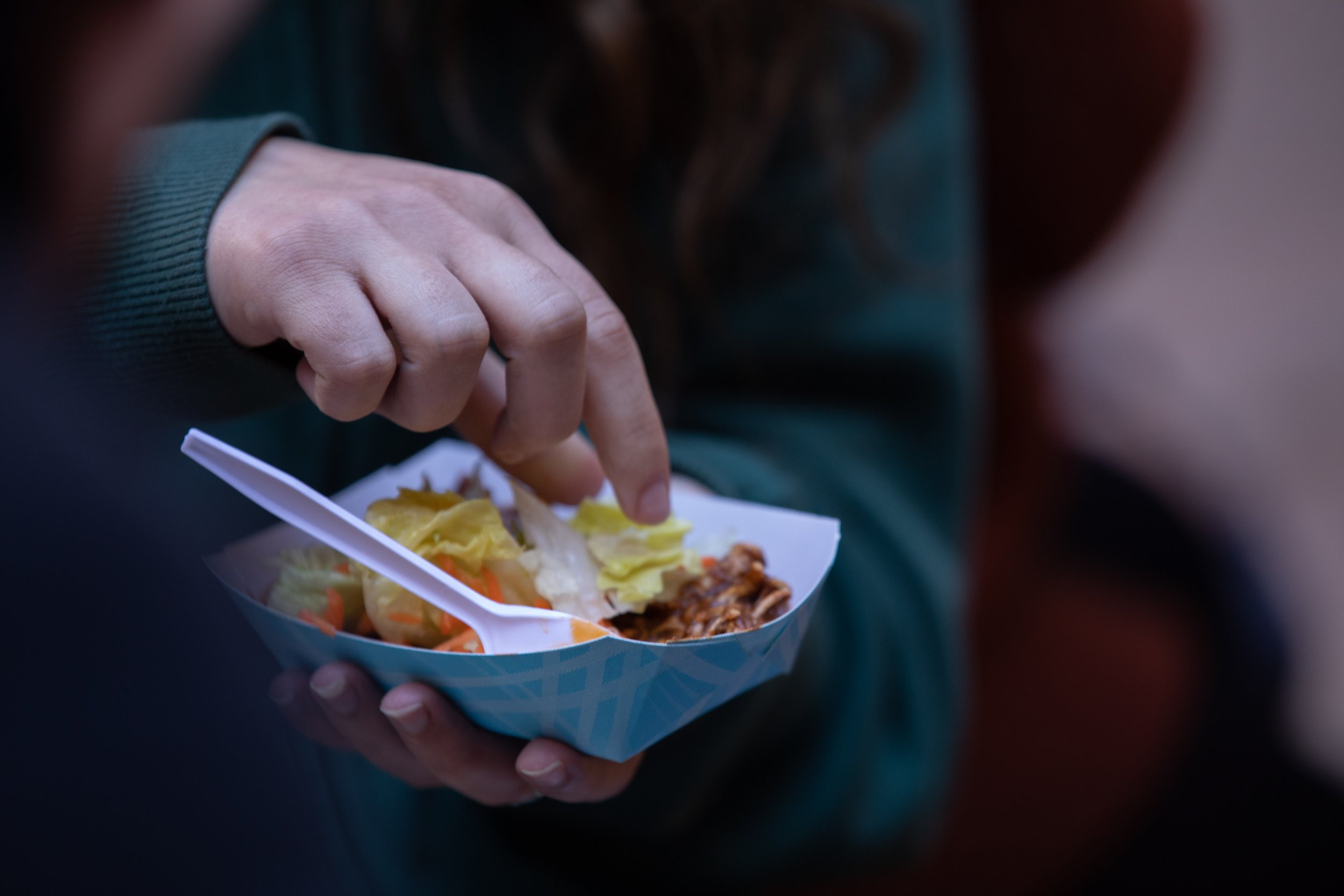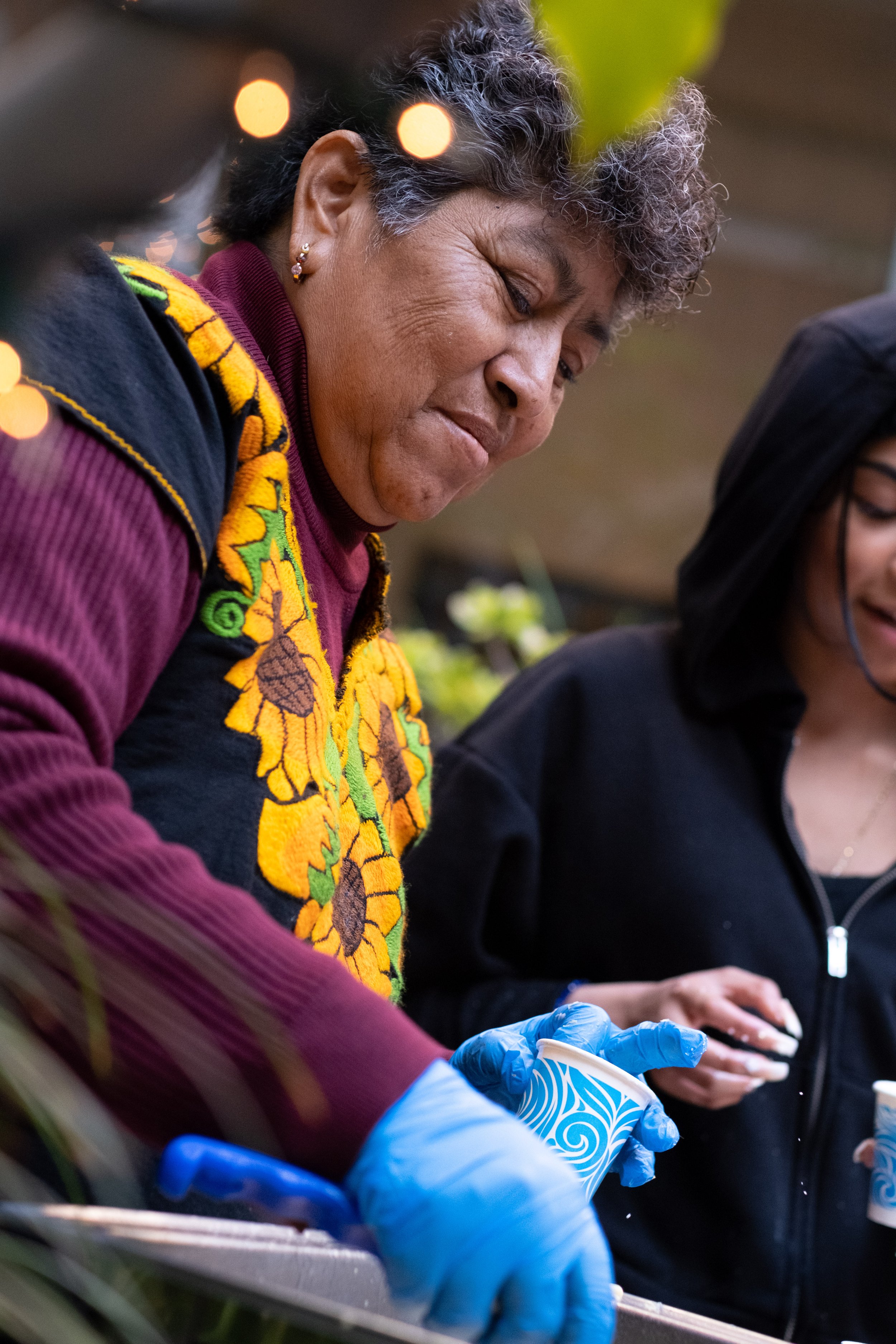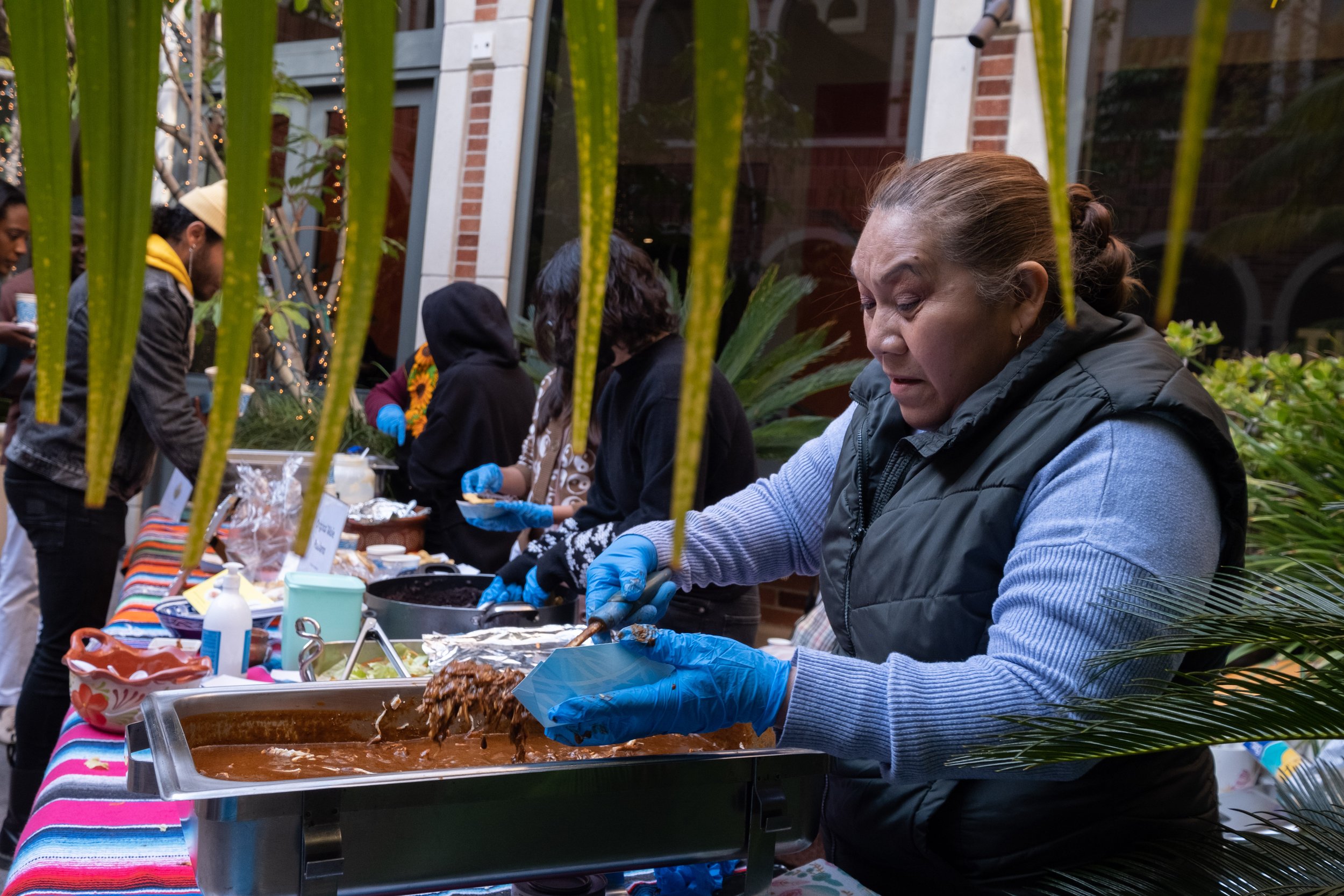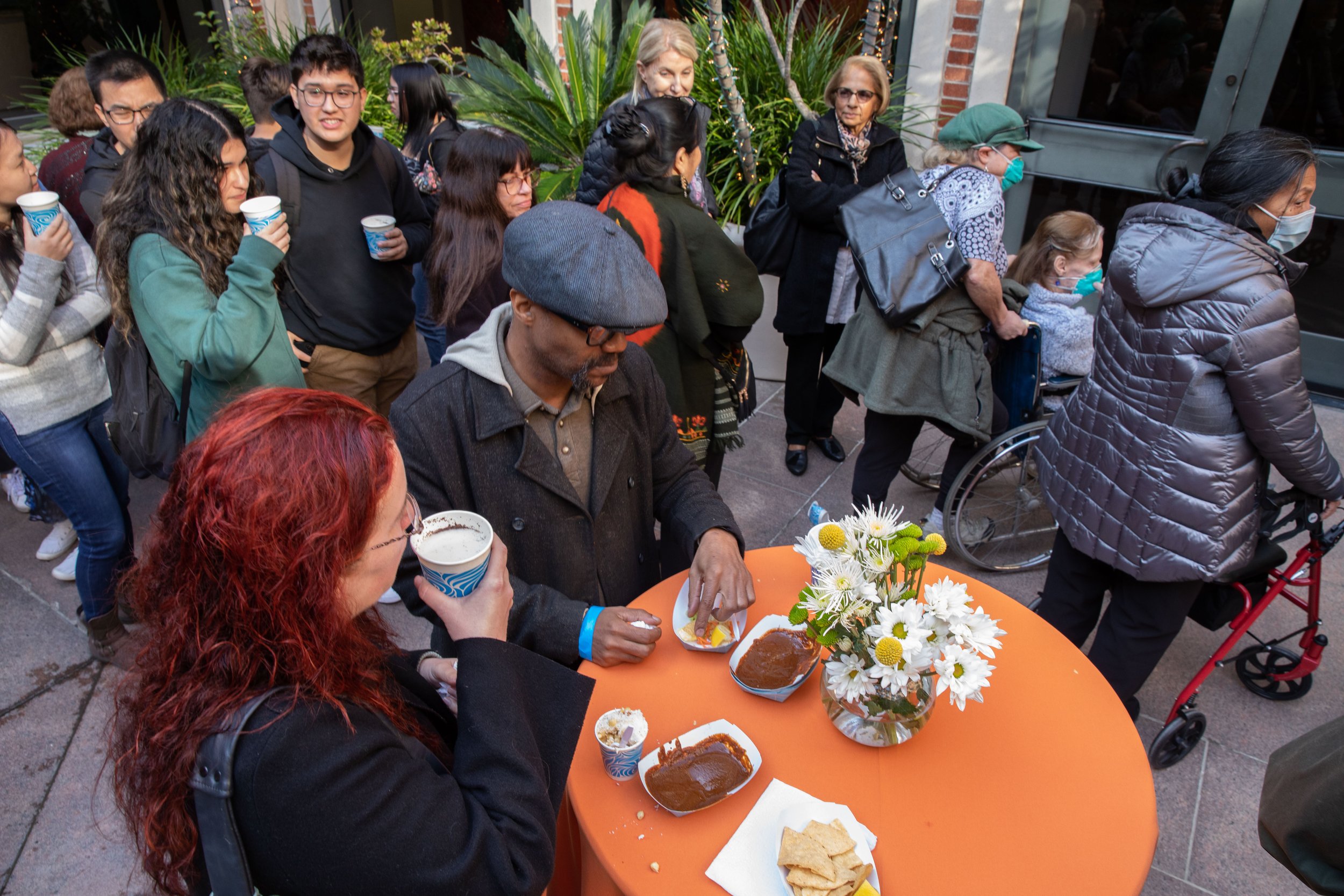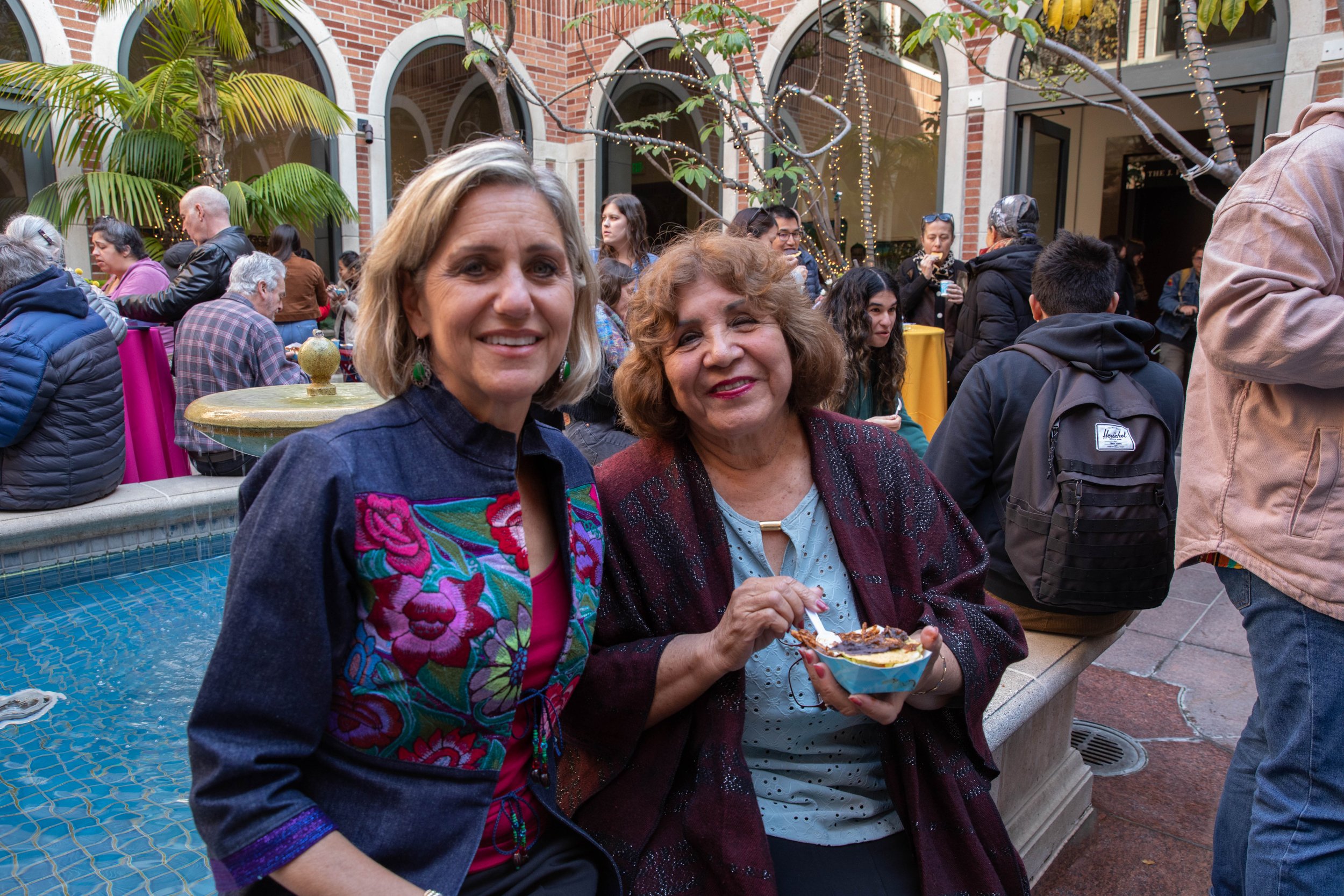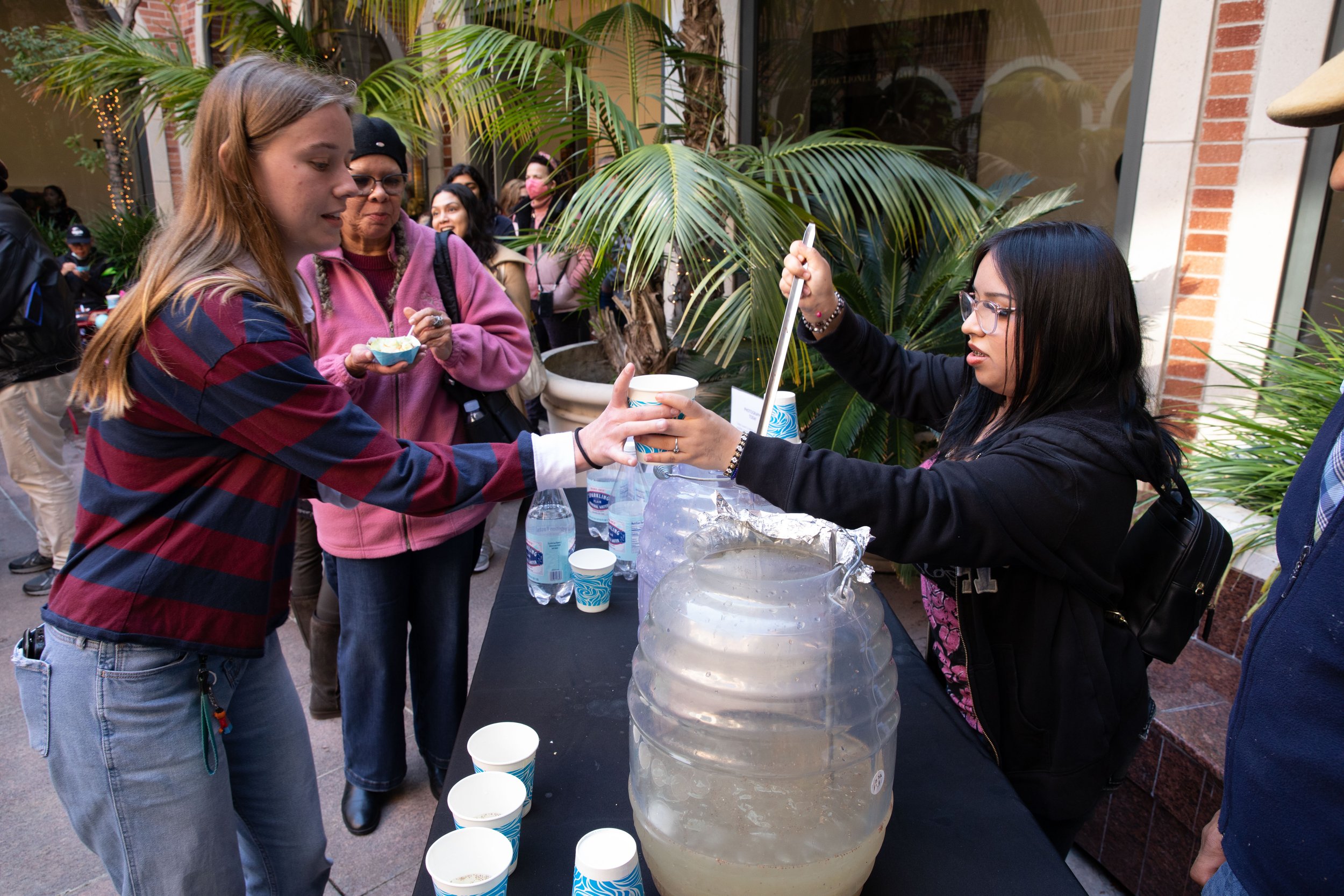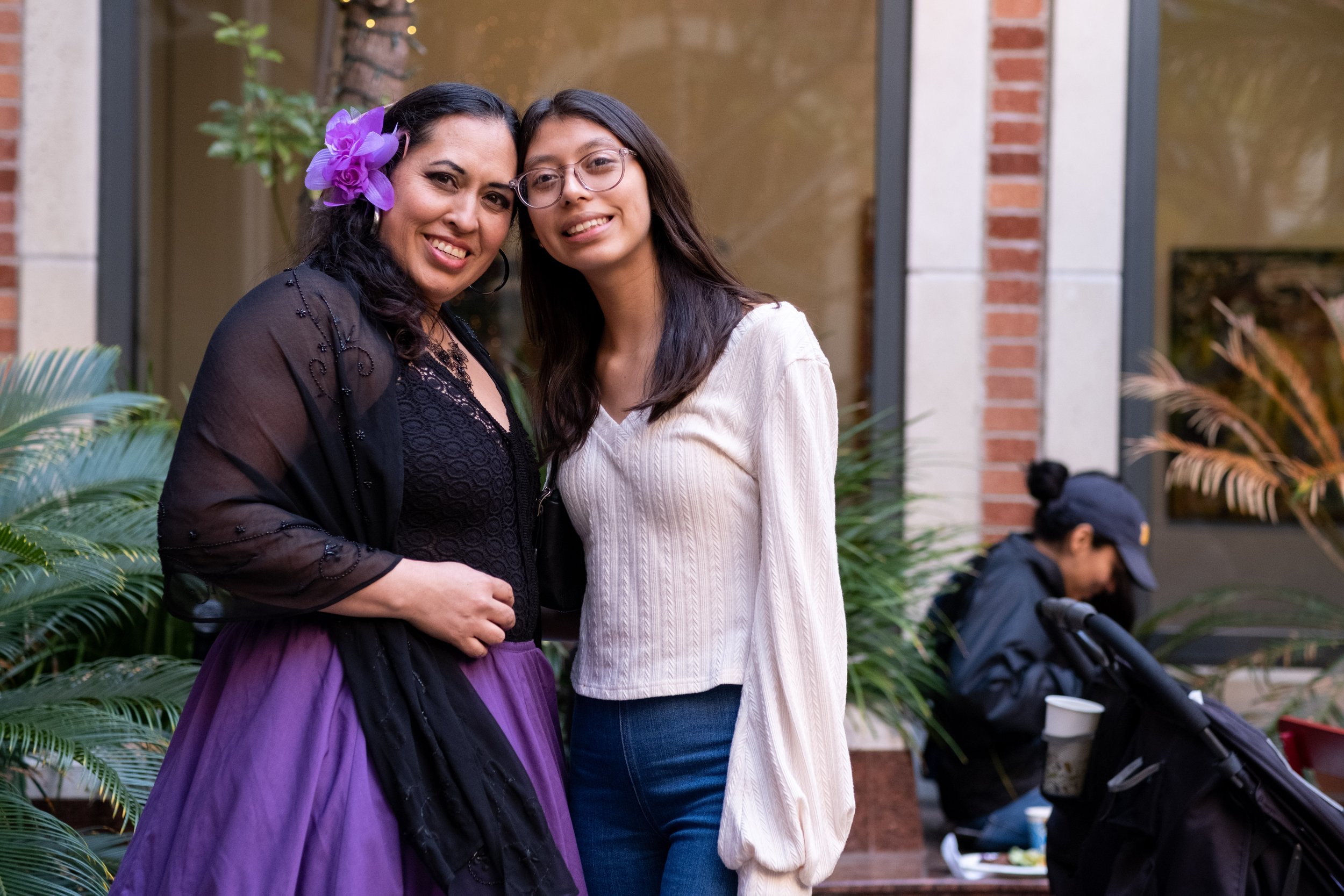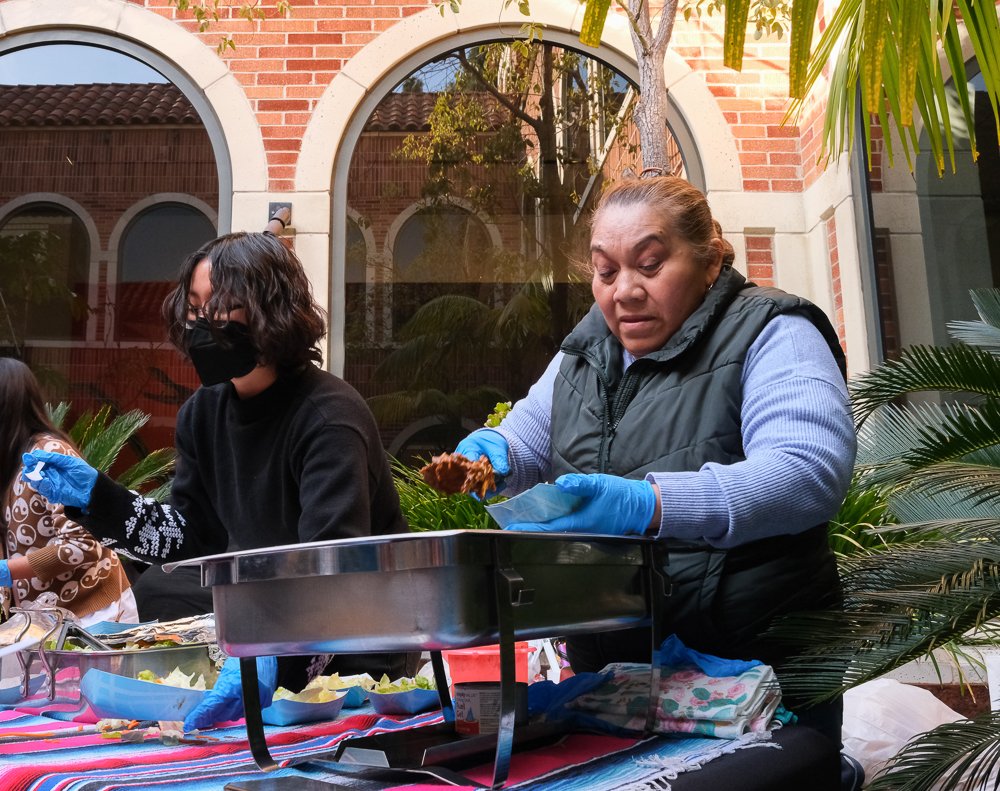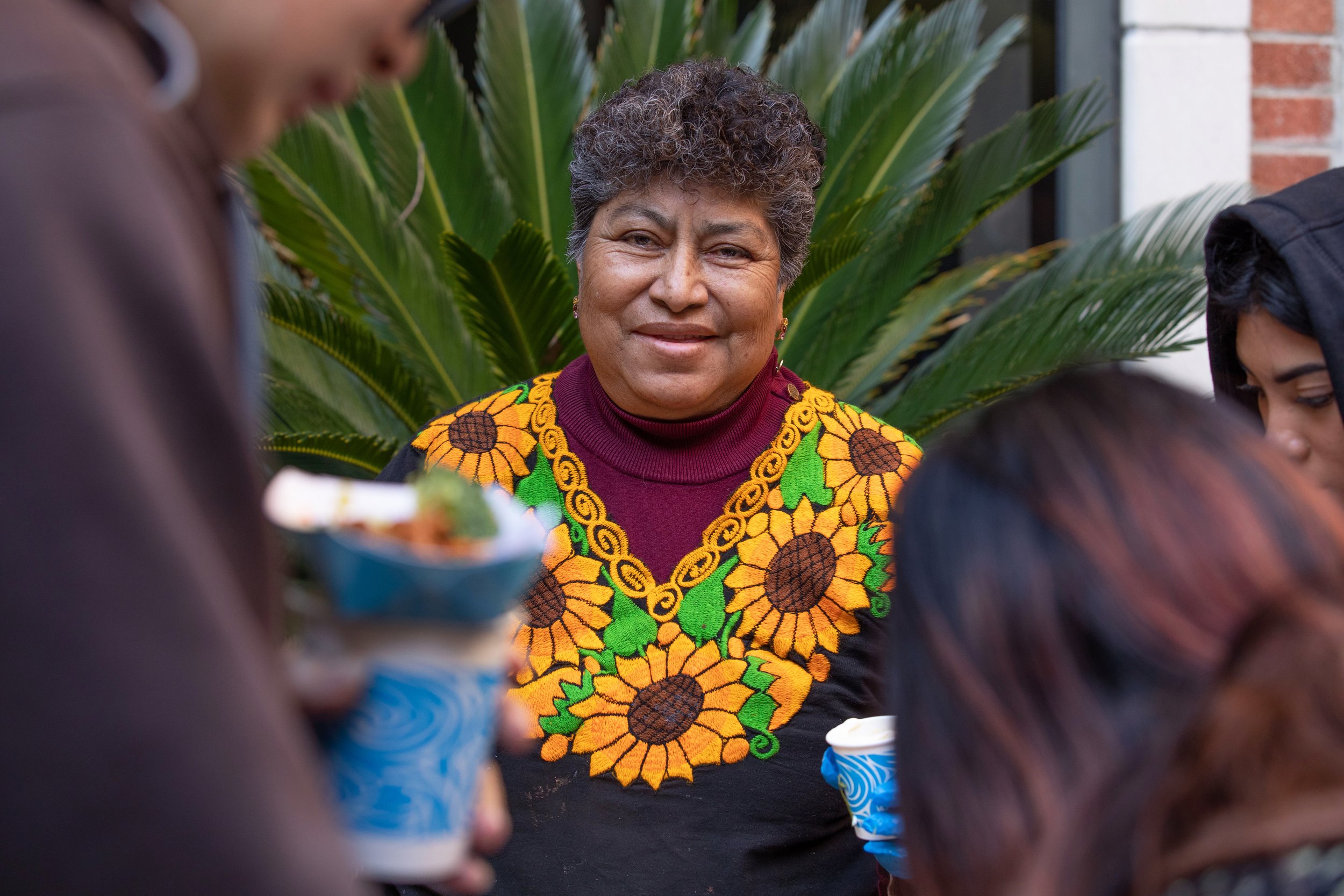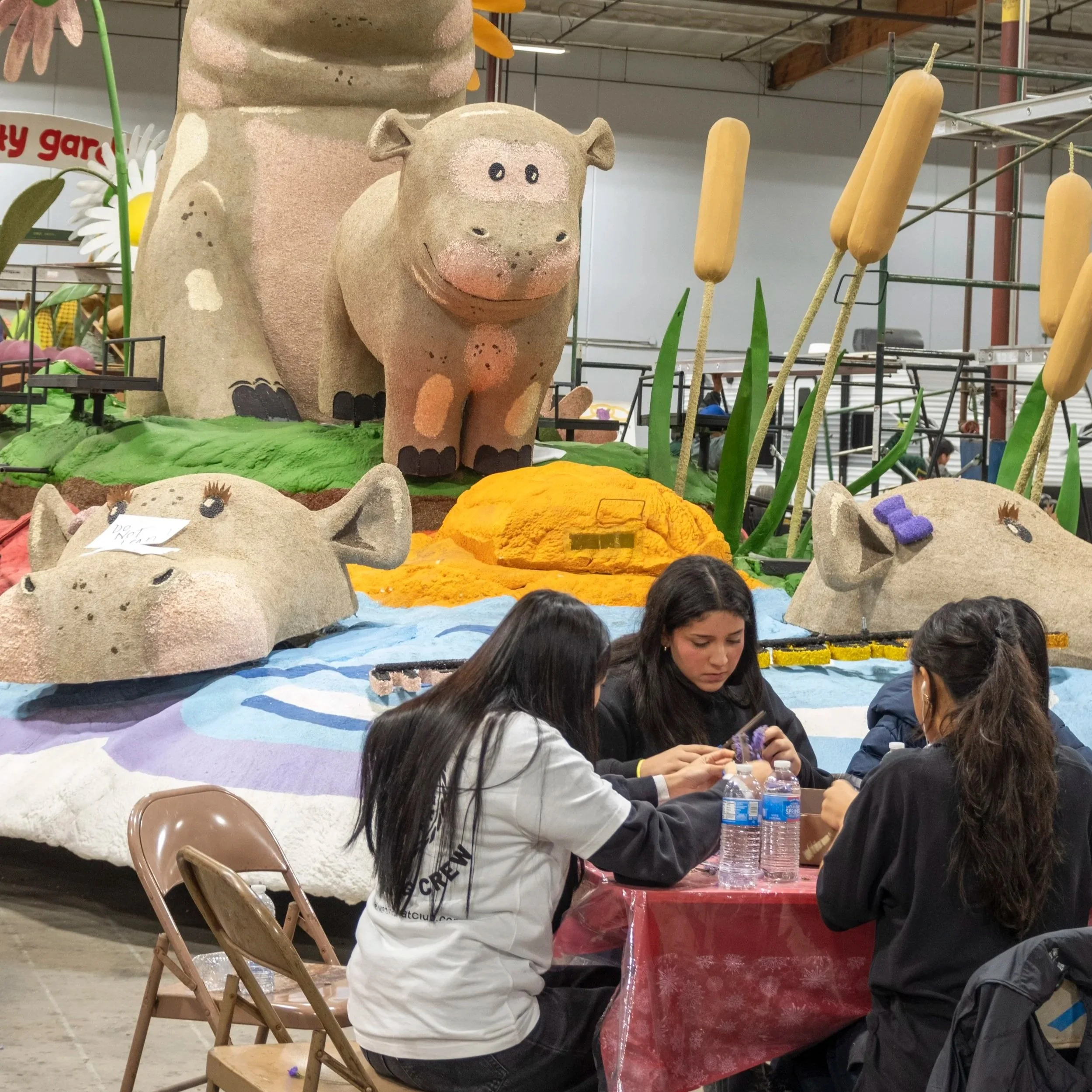The Magic of the "Abuelita"
Award-winning documentary celebrates Mexican food and the “abuelitas” who make it.
On Saturday, March 4, around 100 people attended a screening of the documentary “Abuelita’s Kitchen: Mexican Food Stories” at the Fowler Museum. The film highlights the significance of food within the Mexican American experience in Los Angeles. Some of the dishes of Indigenous and Afro-Mexican origin showcased in the film were offered to the audience afterward.
“The importance of food is that it brings people together,” said Ana Guzman, as she passed down tacos to a long line of attendees. Guzman, 40, is the youngest abuela featured in the documentary. She is also part of the team at FEAST, a nonprofit concerned with promoting health and wellness in under-resourced communities.
Running under 30 minutes, the documentary highlights the topics of culture, tradition, identity and immigration. The film is centered around interviews with 10 abuelas living in Los Angeles. Each abuela, which means grandmother in Spanish, shared how food had been a part of their lives from childhood to when they immigrated to the United States.
“I loved being part of the documentary because it reminded me of my memories with my own abuelita,” said Guzman.
Abuelita is a more affectionate and personal way of addressing one’s grandmother.
“Food allowed me to send my seven children to university,” said Yolanda Baza, speaking to the audience at a post-screening panel. “Now, I am teaching Mexican culture to my grandchildren.”
L.A. County is home to the largest concentration of people of Mexican descent outside of Mexico. According to the 2021 Census, 49 percent of the county’s population is of Hispanic or Latino descent, with Mexicans representing three quarters of that group. Regional cuisines from Mexico abound in the city. These include dishes such as birria from Jalisco, moles from Oaxaca, pescado from Guerrero, and flautas from Sinaloa.
“With this movie, we wanted to promote the diversity of Mexican and Mexican American cuisine in L.A.,” said Sarah Portnoy, a USC Food Studies professor and the film’s producer. The idea for the documentary emerged as part of a multimedia exhibit curated for LA Plaza Cocina, a Los Angeles-based culinary museum focused on celebrating the food and culture of Mexico.
“I am proud to be Indigenous and to represent the Mayan culture in the USA,” said Elsa Maria Chan. She added that she dreams of returning home to pass down her traditions to her grandchildren.
The abuelas featured in the documentary are all aware of their legacy. Merced Sanchez was a central figure in the campaign that got the L.A. City Council to pass a measure decriminalizing street vending in 2017.
“We made history,” said Sanchez. “My colleagues might not always know who I am, but I know who I am, and my granddaughters know it too.”

